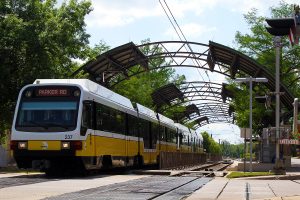
By David Wilfong, NDG Special Contributor
The Dallas Police and Fire Pension (DPFP) is at the top of the list of financial concerns for the city, and most likely the biggest crisis the city will face anytime soon. While city leadership and all concerned interests look for and debate possible solutions all the way from Dallas to the state capital in Austin, one potential source of revenue is ruffling a few feathers.
Currently, the DPFP is running a deficit of approximately $4 billion, and there is no quick and easy answer as to where to find the money to shore it up. State Representative Dan Flynn (R-Van) has filed a comprehensive 177-page bill (HB-3158) to address the funding crisis, but officials still need to find an additional estimated $450 million.
It has been widely reported that the fund is on track to go broke in 10 years, but Flynn has stated the fund could run dry a lot sooner than that if something is not done quickly.
That’s where the possibility of tapping into taxes originally earmarked for DART comes in.
Dallas City Councilmember Scott Griggs, who also sits on the board for the DPFP, has proposed tapping into tax revenues currently being allocated to the Dallas Area Rapid Transit (DART) as one potential source of funds to shore up the ailing pension.
No surprisingly, DART reacted swiftly against the proposal, publicly opposing it in a press release on the DART website.
“The (DART board) resolution also points out if Dallas were successful in reducing its contribution, DART would reduce service within the city by that amount,” DART stated. “This would result in significantly less bus and rail service in Dallas, affecting approximately 20,000 daily Dallas customers, as well as the loss of 250 to 350 jobs held by DART employees.
“The DART resolution explains such a plan is not an option since cities part of DART must commit a full one percent of sales taxes collected in their cities. DART received approximately $545 million in sales tax revenue from its 13 service area cities last year.”
The DART Board unanimously passed a resolution against the measure during their March 28 meeting.
But it is also that 13-city stretch of the DART service area that Griggs said partially justifies the use of tax money to divert to the DPFP. Griggs explains that Dallas taxpayers are currently subsidizing the transportation needs of suburbanites who currently use the DART system in other municipalities.
He also said he believes DART could still improve its services to riders through optimization of bus routes and cutting certain projects, specifically naming the proposed Cottonbelt rail line that would run north of Dallas (all currently operating DART light rail lines run through the center of the city).
The DART Board is not alone in its opposition to Griggs’ plan. Dallas City Councilmembers Erik Wilson and Jennifer Staubach Gates both voiced their opposition to the proposal at the April 13 meeting of the DPFP board meeting where Griggs and fellow Dallas City Councilmember Philip Kingston spoke in support of such a move.
Ultimately, it will be the voters who decide whether or not such a stop-gap measure takes place. The measure will have to go through the state legislature and then back to the Dallas City Council, who could then pass the measure on to Dallas voters in a referendum.
Griggs, who has repeatedly said the solution to the DPFP crisis is going to involve “shared pain” across the city, said he believes the Dallas citizens, when faced with the other possibilities, will decide to divert 12.5 percent of the existing tax revenue stream currently going to support public transportation is one of the least harmful approaches to fixing the problem.





Significantly reducing bus and rail service within Dallas seems like a disaster waiting to happen if you ask me. I hope it doesn’t come to that.